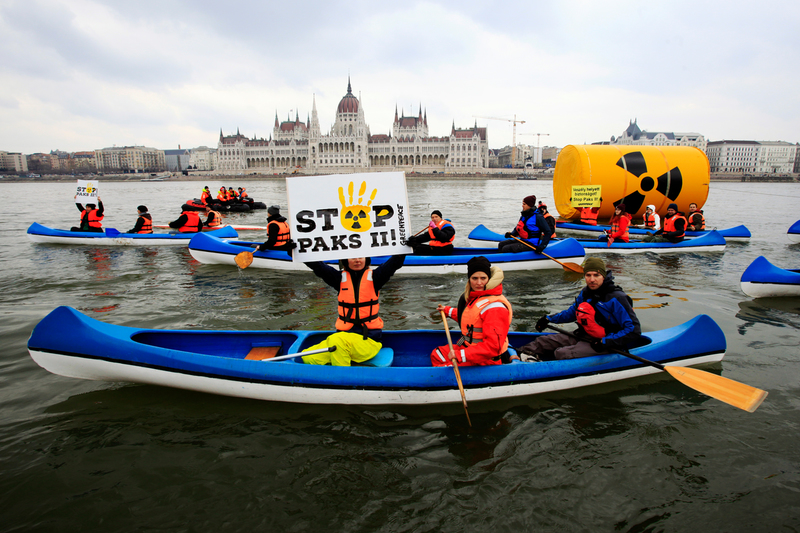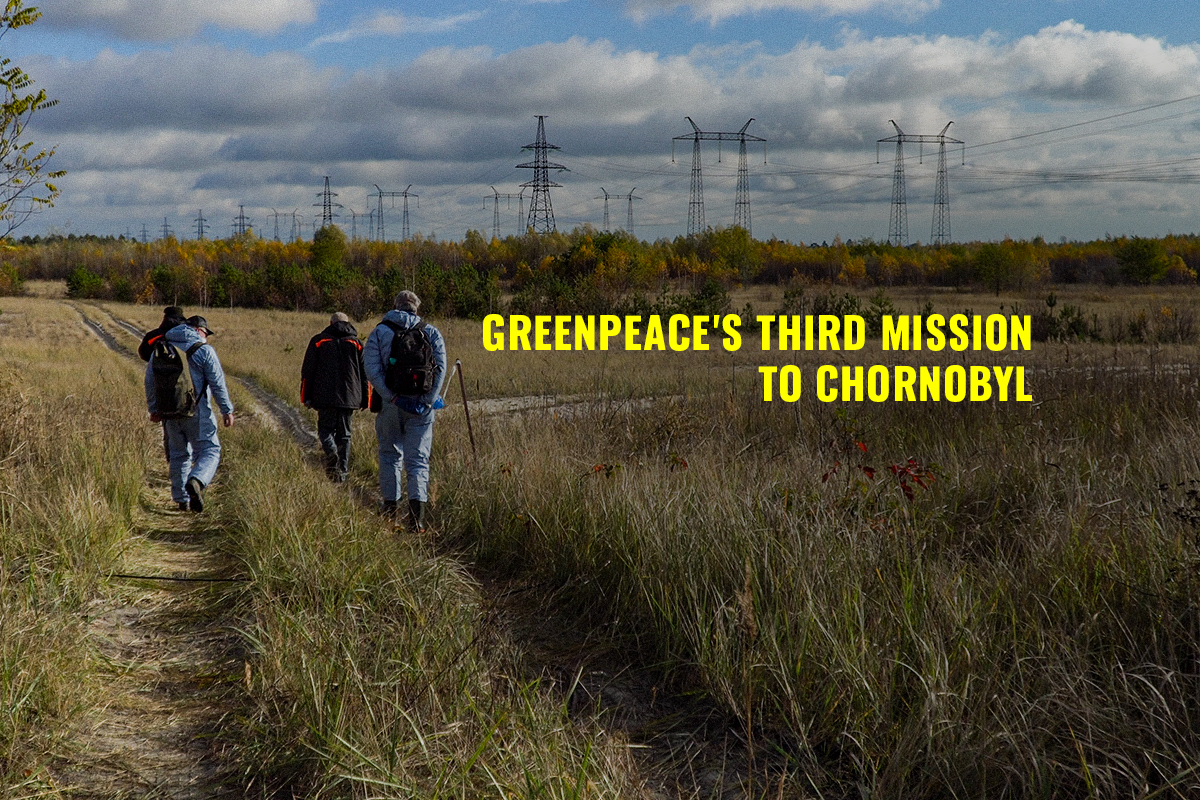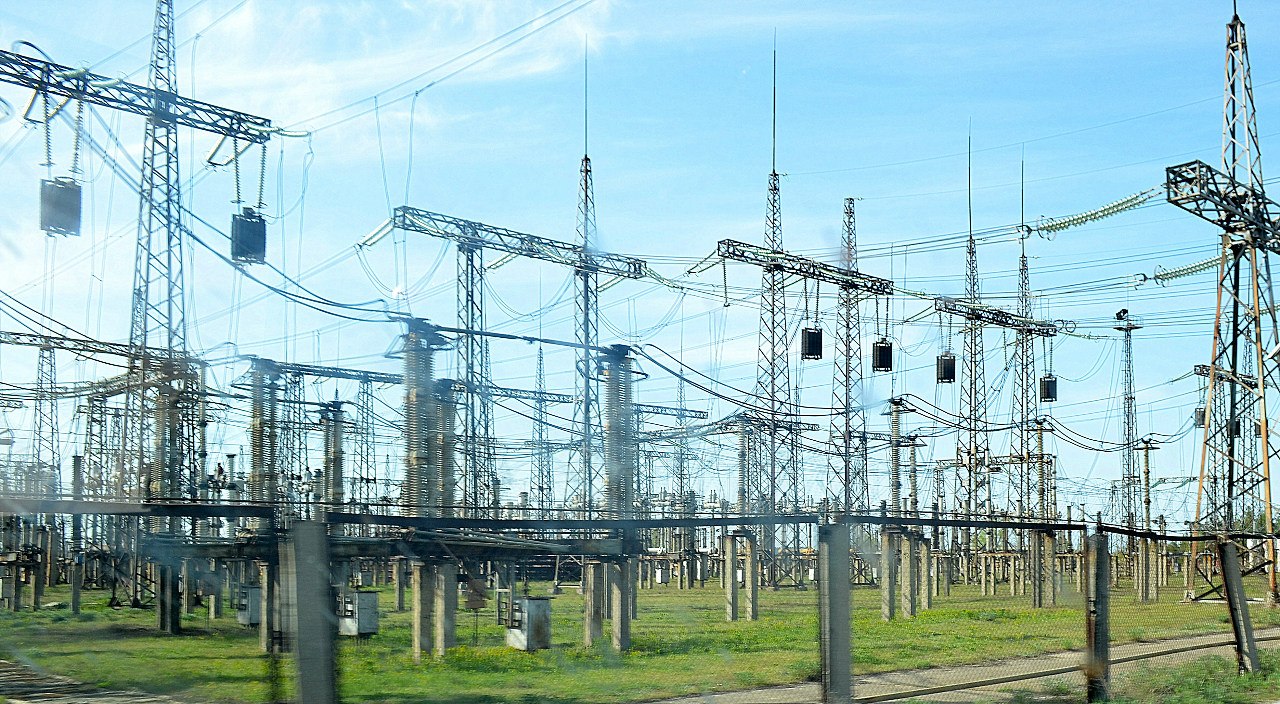The European Court of Justice has ruled in favour of the Austrian government, declaring that in 2017 the European Commission’s approval of large financial state assistance for the construction of Russia’s Paks II nuclear project in Hungary violated EU law. Greenpeace regional organizations have actively opposed the Russian Paks project since it was first planned more than ten years ago.
For the first time since the start of the full-scale war against Ukraine, the Russian government and the Russian nuclear corporation Rosatom have faced serious opposition from European institutions. This could significantly undermine the political influence of Russian nuclear energy in Europe and has the potential to force sanctions against Russian nuclear energy.

Protest against Nuclear Power Plant Paks 2 in Budapest
Paks is Hungary’s only nuclear power plant. Paks II is a Russian project to expand this nuclear power plant. The project consists of two large reactors supplied to Hungary by Russian state nuclear corporation Rosatom. The engineering, procurement and construction (EPC) contract was concluded in 2014 between Rosatom’s subsidiary Nizhny Novgorod Engineering Company Atomenergoproekt and Hungarian state owned company Paks II. According to this contract, the two new reactors (5 and 6) of the Paks nuclear power plant were meant to start operation in 2025 and 2026 respectively. However,the project has suffered many years of delay and the construction is scheduled to start in only November 2025.
In 2017, the European Commission had authorised the state aid for the construction of these two reactors despite the fact that Hungary directly awarded the project to Rosatom instead of running a proper tender procedure, as mandated by EU public procurement directives.
The Court of Justice found today that this direct award breached EU law. The Commission failed to properly explain why EU tendering rules could be bypassed, allowing Rosatom to benefit from a multi-billion contract.
In 2017, at the time of the decision, organization argued that approving the direct award of the aid constituted an undue direct and illegal gift from Hungary to Russia’s Rosatom, and that the Commission should have never authorised it. Today’s ruling confirms the illegality of the Commission’s decision, which undermines the effectiveness of EU sanctions and effectively allowing Russia to profit from the Hungarian taxpayers’ money EU while waging war against Ukraine.
Shaun Burnie, senior nuclear specialist at Greenpeace Ukraine:
“This ruling is a serious blow to the Russian government and Rosatom’s plans for further nuclear expansion inside the European Union. The European Commission should now use this legal opportunity to stop Rosatom’s plans and to work with EU governments to impose severe and effective sanctions that will end Russian nuclear business. The Paks II locks Hungary into expensive, delayed nuclear technology financed by Rosatom, which is at the heart of the illegal war against Ukraine”.
Marc Dengler, Greenpeace Austria:
“EU institutions cannot allow member states to bypass public procurement rules for politically sensitive projects that threaten climate, energy security, and European unity. This decision sends a clear message: state aid must respect the law, protect taxpayers, and prioritise sustainable, secure energy solutions over politically motivated deals with Russia.”
We call on the European Commission to immediately restore legality and revoke the authorisation of the state aid to Paks II and review all state aid projects linked to nuclear expansion. EU energy and state aid policies should ensure that only to ensure compliance with EU law, and to prioritise environmentally and climate-compatible and geopolitically safe energy policies should benefit from public support.
Background:
- In 2014, the European Commission approved Hungary’s state aid for Paks II.
- Greenpeace organizations highlighted violations of EU public procurement law, which were ignored.
- Austria challenged the Commission’s decision in 2018 before the EU General Court; the ruling initially sided with the Commission.
- Austria filed an appeal to the European Court of Justice.
- In March 2025, the Advocate General advised that the Commission’s approval violated EU public procurement rules.



